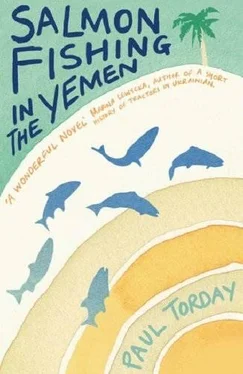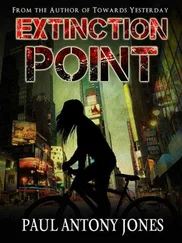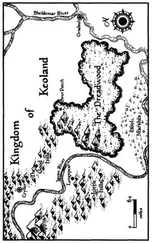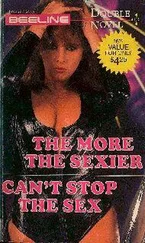I never went back to St James’s Street and, as far as I am aware, neither did Harriet.
I spoke to her once or twice by telephone. She was staying with friends in south-west France and vague about her plans.
‘I’m so glad the project succeeded, if only for a day. You must never let anyone take that away from you, Fred. You must treasure that. But I’m sorry we had to pay so very high a price. I miss the sheikh terribly. It’s another death in the family, in a way.’
‘When are you coming back to the UK?’ I asked.
‘I haven’t any particular plans. I’m not spending much money out here, and my friends seem happy for me to stay as long as I want. I’ve got my own flat in one corner of their house and my own front door, and I can come and go without disturbing them. You know, the sun shines most of the time in this part of the world, and no one bothers me. It’s what I need. I know I’ll run short of money sooner or later, and then I’ll have to think about getting a job. But for now I just want to be quiet.’
‘Will I see you when you come back?’ I asked. I hadn’t meant to ask any such thing. I had no right to.
‘I don’t know, Fred. I don’t know. We’ll have to see what happens.’
I heard some weeks later that she’d managed to get a job in France, finding properties for English people looking for second homes.
Interrogator:
Please confirm what contact you have had with Peter Maxwell or his office since your return to England.
Alfred Jones:
Oh, I forgot you asked me that. Yes, I did pick up a voicemail from Peter Maxwell saying ‘I’ll make sure you never work again in this country’ or something along those lines, but then I heard him burst into tears just before he hung up so I didn’t take it very seriously. But maybe he did try and stop me being re-employed for some curious reason of his own. I do know that when I applied for my old job at the NCFE I received a very short letter from David Sugden complaining about cutbacks in their budget and regretting that my old position was not going to be filled as a result. I don’t know that I could have gone back there anyway. Then I rang some old friends in the Environment Agency and in the end I did find another job. It’s not a desk job. It’s outdoor work, and the pay is what you might call minimal compared with my old salary. So Mary was right. The good times didn’t last very long, after all.
I’m working in a new hatchery which has been built on the headwaters of the Coquet in Northumberland. Our job is to rear salmon fry from the egg in rows of stainless steel tanks in a small hut up on the moors. The idea is to ensure there will always be juvenile salmon available to be introduced into the river, even in years when natural production fails because of drought or some other disaster. I like the work. It’s very interesting and often hard labour, but I have plenty of time to think. Thinking is what I do most these days.
I never talk to anyone about the Yemen salmon project, although I am teased now and again about it by the people I work with.
The project acquired a degree of notoriety in the press after the deaths of the prime minister and the sheikh. It was written off as some kind of bizarre political adventure. There has been little appreciation in the scientific community at home of what we achieved. In the Yemen they remain very proud of it. The sheikh is remembered in prayer every day at the Ministry of Fish Wealth, which has taken over responsibility for the project. The holding basins have been drained, and all the machinery has been mothballed. In that dry climate it will take no harm for a few years. They say that one day salmon will be held in those tanks again and released into the Wadi Aleyn, but it hasn’t happened yet.
The people of al-Shisr netted all the remaining salmon in Holding Basin N°2 for several weeks after the sheikh’s death. There were nightly barbecues on the wadi bed, and the smell of grilled salmon rose every evening into the sky.
The deputy minister for fish wealth has written to me that the next five-year strategic fishery plan is currently being formulated, and when they come to discussing the role of a salmon fishery in the future development of the Yemen ’s natural resources, I will be consulted. That was some while ago, and they have not been in touch since. I don’t know whether to hope that I will hear from them or not.
Looking back to that day the sheikh died, I know now that I was in shock, and his death had not really hit me. There was just too much happening. I couldn’t take it all in at the time. Since then I have grieved for him, and now, as I wade through the headwaters of the Coquet, emptying buckets of salmon fry into the river, I have conversations with him which are more than imaginary.
I hear him say to me, from somewhere behind my left shoulder, ‘Yes, Dr Alfred, we did it in the end. We believed in it, and so we did it.’
‘You were right, Sheikh. We believed. You taught me to believe.’
I hear the smile in his voice, although I cannot see it. ‘I taught you to take the first step: to learn to believe in belief. And one day you will take the second step and find what it is you believe in.’
I empty the bucket of juvenile fish into the shallow, gravelly stream, and say, ‘How will I know?’
And, fainter than the murmur of the rills of water trickling over the stones, comes the reply: ‘You will know.’
So, I work at the hatchery, and at night I sit in my rented two-roomed cottage near Uswayford under the green and brown bulk of the Cheviot Hills. I sit and I think. I don’t really know what it is I think about although I still think sometimes about Harriet. I try not to do that too often. That awakens memories I would rather not have.
Sometimes I think about Mary. I speak to her on the phone most weeks. I have given up email unless it is absolutely necessary. It is part of another life now. I speak to Mary on the phone but I reverse the charges because I really can’t afford the phone bills. She is working in Diisseldorf now. I’m not sure if it was the promotion she was expecting. I think it has been more of a sideways move. We all have our disappointments in life.
We have sold the flat in London and bought a smaller one as neither of us is there very often. We travel to London once every other month. We meet and have dinner together, and try and make some sense of our lives. I’m not sure we will succeed. We’ve agreed we will remain married. Neither of us can think of anything else to do with our lives. We both have our work. I’ve told Mary I don’t want her to feel financially responsible for me. She agrees, but I think she wants to look after me, really, if only I would let her. But I’m happy, here in these hills, raising juvenile fish and putting them into the river. These little salmon fry have more chance here than they would in the Yemen. This is their natural habitat, and this is my natural habitat, too.
In the evenings I read a lot. I can’t get a television signal where I live, and I can’t afford to pay for satellite TV. I don’t miss it. I never watched it much, anyway. So I read. I read anything and everything, and at weekends, if I’m not in London, I browse the shelves of the secondhand bookshops in Alnwick and Morpeth, my nearest towns. I can’t run to new books, but it seems to me so many good books have already been written I don’t need to get new ones. I buy handfuls of old novels and biographies for a few pounds, or sometimes I just trade in the ones I have read. They let me do that. I’m a good customer. I buy the classics-Dickens, Thackeray, Fielding. Lately I’ve started on books of essays-Hazlitt, Browne, and so on. In one of them I read something I rather liked, and I’ve got it here. I keep it with me. I’ll read it to you, if you like.
Читать дальше












